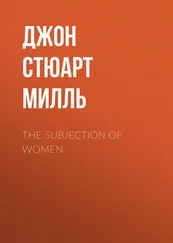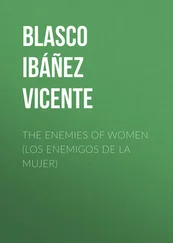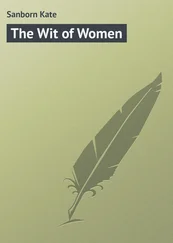1 ...8 9 10 12 13 14 ...93 Then she came out of the bathroom with red eyes and a heavy head. Fan came over, and she embraced Fan and kissed her. Fan kissed back and they kissed each other loudly. She then went to kiss her father, her mother, that pair of old corduroy sofas at her home, her little chair, and the ice-cold radio/tape recorder made in the Soviet Union. Believing that she must be sick, her father and mother told her to go to bed. There she saw her folded handkerchief. She opened the handkerchief, at the centre of which was a white, yellow-eyed cat. She stared at the white cat and swept the handkerchief to the corner of the bed, but later she reached out to get it back. She opened the handkerchief and stared at the white cat. She put her mouth on the cat’s mouth and cried.
1
Like everyone else arriving at the Reed River Farm, Wu and Yixun were placed on male and female teams. Located in the alkali salt flats southwest of Fuan, the farm was where the provincial Architectural Design Academy congregated its own intellectuals for isolated labour reform.
The couple’s transfer from Beijing to the provincial capital Fuan in the late sixties already had an undertone of punishment: as an engineer in the Beijing Architectural Design Academy, Yixun had aired his dissatisfaction with Beijing’s urban planning. He was young and aggressive back then, often speaking bluntly. A piece of history most people might not be aware of: when the country was just established, Chairman Mao invited Mr. Liang Sicheng to the Tiananmen Tower to discuss the future urban planning of the new Beijing. Not knowing much about cities, Chairman Mao might well have been in the grip of his own excitement at having won the revolution, or he might actually have had an in-depth understanding of the urgency of rapid industrialization, if the country was to be strong and prosperous.
In either case, he stood on the Tiananmen Tower and looked down, sweeping that great-man’s arm of his towards the grey misty distance and saying to Liang Sicheng, “In the future, chimneys should be visible from here in every direction.” The great leader’s declaration must have terrified Liang Sichang, the great architect so devoted to preserving old Beijing. And Yixun, an undistinguished young architect, immediately expressed his own doubts on hearing this piece of privileged information. He thought it was absurd and inconceivable to make chimneys appear everywhere in the view from the Tiananmen Tower. How could Beijing, a city famous for culture, which had survived so many dynasties, be turned into a huge factory? A few years later, when Yixun’s sympathetic comments to Liang Sicheng were reported, both he and his wife, Wu, an English translator in the reference room, were transferred to Fuan.
This transfer didn’t set off panic in their hearts. The Cultural Revolution had already started by then, and one city was much like another. Most people at the Beijing Architectural Design Academy were headed for a farm located somewhere in the south for concentrated labour and thought reform. The revolution was not going to give up on any of its revolutionary targets easily.
They brought their two daughters — Tiao and Fan — to the provincial capital, Fuan, only to have to leave it behind as soon as they got used to it. They hastily settled their daughters and gave Tiao their residential card, rice ration book, clothes coupons, bankbook, and a small sum of money. After emphasizing to Tiao over and over again what a great responsibility she would have as head of the household, they took their bags and left for Reed River Farm with most of their colleagues. It had been suggested that the period of labour might have no definite end, it wouldn’t be a week or a month; it could be several years, perhaps, so they prepared themselves for a long stay. They were put under the leadership and management of the working class, and the first thing they were asked to do was to separate — husbands and wives must separate in order to help them temper their revolutionary willpower and strengthen their dedication to the labour. They lived in big collective dormitories — men in a male dorm and women in a female dorm — and inside, lines of plank beds stretched out toward the vanishing point. They were assigned to work in the brick factory. Every day, Yixun hauled the bricks in a big cart, originally pulled by a horse, and Wu wore coarse cloth gloves to load the bricks into the cart.
Those intellectuals who laboured at the Reed River Farm — the male and female teams — didn’t object to the Cultural Revolution. They had plenty of time when they were not labouring to study or to criticize each other, to attend denunciation meetings or to do self-criticism. They diligently tried to use these methods to remove the nonproletarian marks imprinted on their bodies, rolling in the mud and stepping into cow dung, fervently hoping to be reborn. But at the same time they were weak and easily distracted by fantasy. For instance, their hearts and minds didn’t always remain at peace. At the end of a day’s work, when they returned to their separate dormitories, stinking of sweat, their faces all dusty, husbands always longed for their wives, just as wives always longed for their husbands.
If you were to look at Reed River Farm from the point of view of someone who appreciates landscape, ignoring the atmosphere and mood of the time, you would find it a boundless and magnificent place. The farm was surrounded by thousands of acres of reeds, like the passionate, tender petals clustering around a sunflower. Especially in autumn, the golden reeds, taller than a person, with the white, fluffy flower on their heads, would suddenly grow and swell, releasing a spirit overpoweringly fierce and deeply peaceful, as if they wanted to take over the world and withdraw from it at the same time. Because the reeds blocked the view and smothered all sound, only the wild dark brown ducks could play freely and nest in the thicket of reeds, laying eggs that no one could collect. Walking in, you would be awed and dumbstruck by the stillness of the ten thousand acres of densely packed reeds; you would also be cleansed by the noble, pure spirit of the ten thousand acres of reeds and feel renewed. At nightfall, clusters of reeds would seem more crowded in the autumn wind, like groups of women in white kerchiefs and skirts holding their breath and walking one after the other in mincing steps. Unfortunately, the farm separated the people from the reeds behind an enclosing wall. At the time neither Wu nor Yixun were in the mood to appreciate the grandeur of the reeds outside the wall. Compared to the charming sweep and vast stillness, the farm seemed very plain and drab, with identical low red-brick buildings everywhere. There was only one attractive place, a small house on top of a hill. Yet how could it actually be a hill? Here, it was an endless plain. The hill was a small slope at the end of a vegetable field slightly higher than the farmland; ordinarily it wouldn’t pass as a hill. But on the plain, even the most modest elevation could be considered a hill. The flatness of the plain made any rise stand out as individual and unique. No matter how small, as long as people were willing to, they could call it a hill. The small house on the hill.
On Sundays, only on Sundays, it was open to the couples who lived in the collective dormitories. It was locked and left unused on other days. Wu and Yixun hadn’t counted how many couples there were among the male and female teams — probably at least eighty. Anyone in a couple would need to use the small house on the hill sooner or later. There was only one house and one day of the week, so people had to wait in line. This type of line was different from the kind they waited in to buy rice and vegetables. Although they were husbands and wives openly, they couldn’t openly wait in line one after another to use the small house. The implication of the word “use” was so direct and obvious that people felt excited and embarrassed on hearing it. Therefore their waiting in line had about it a bit of the intellectuals’ reserve, a modesty, the result of their upbringing, and maybe the careful calculations of the powerless. Early Sunday morning, you wouldn’t see a distinct group milling in front of the house, but you could see men and women in couples scattered randomly around, near and far. They were either under a tree, on a vegetable patch, or sitting on bricks, apparently engaged in tête-à-tête. They looked calm and relaxed, but their eyes were fixed intensely on the tightly closed door of that small house. Every time the door opened and a couple walked out after finishing their business, the next couple to enter would be the one closest to the door, and the next couple after them would take a definite step closer. This “step” was very discreet, maintaining a distance of at least fifteen metres. Who would be heartless enough to wait right outside the door? Couples who came late would judge with care which spot to take. Latecomers never rushed past those who were already there to get to the door. The couples were all very precise about the order. It almost looked like they were scouts — in groups of two — slowly outflanking the small house; the scene also resembled a round of confused chess, unintelligible to laymen, with those anxious couples as the pieces on the board. The chess game only appeared disorderly; it was the unexpected that led to trouble, which happened once in Wu and Yixun’s memory.
Читать дальше
Конец ознакомительного отрывка
Купить книгу












